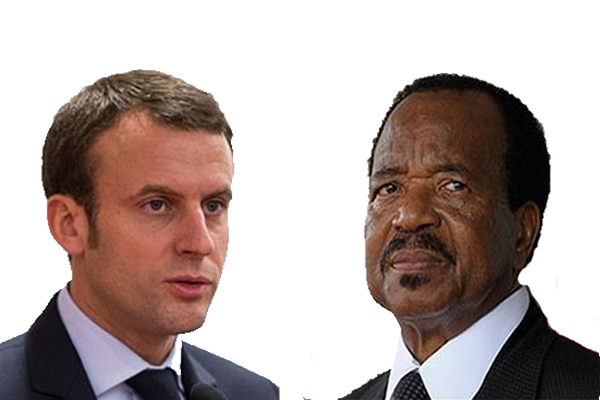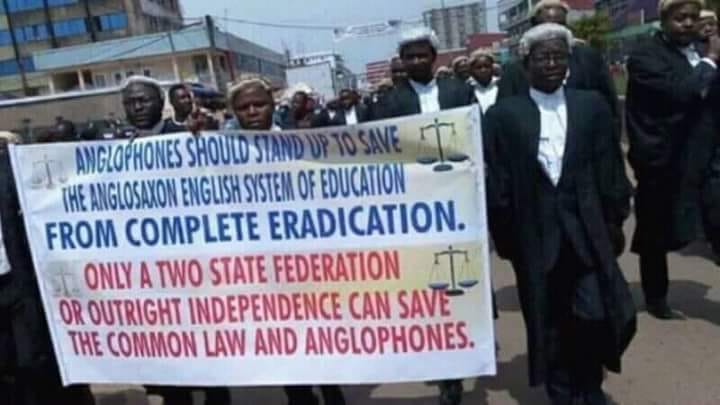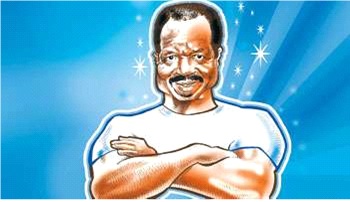Macron’s Recognition of Palestine Revives Ambazonian Demands for Independence
By Andre Momo,
Analysis of Dr. Michael Rubin’s June 2025 Commentary
When French President Emmanuel Macron announced on June 24 that France would recognize Palestine as an independent state in September, he likely expected diplomatic ripple effects across the Middle East — not a political shockwave more than 2,000 miles south in Cameroon. But according to Dr. Michael Rubin, a seasoned U.S. policy analyst and former Pentagon official, Macron may have unwittingly reignited one of Africa’s most enduring and underreported independence struggles: the Ambazonian movement.
In his commentary, Rubin draws a provocative line from Macron’s Middle East policy to France’s colonial legacy in Africa, arguing that Paris cannot, in good faith, support Palestinian statehood while continuing to back Cameroon’s brutal suppression of Anglophone self-determination.
Colonial Fault Lines: The Roots of the Ambazonian Crisis
Cameroon is one of the rare African nations with dual colonial parentage. Germany established Kamerun in 1884, but lost it after World War I. The League of Nations then split the territory between France and Britain. While France administered the bulk of the territory as “Cameroun,” the British governed two slivers along the Nigerian border: Northern and Southern Cameroons.
In 1960, French Cameroun gained independence. A year later, a plebiscite forced a binary choice on the British territories: join Nigeria or Cameroon. Northern Cameroons voted for Nigeria. Southern Cameroons — today’s Anglophone North West and South West regions — chose to join Cameroon under a federal arrangement, with explicit guarantees of equality, autonomy, and cultural protection.
But those promises were swiftly betrayed. In 1972, President Ahmadou Ahidjo abolished federalism. Paul Biya, in power since 1982, entrenched centralization, imposed French language dominance, and oversaw the marginalization of Anglophone identity — setting the stage for the Ambazonian independence struggle.
Rubin’s Claim: Macron’s Hypocrisy Is Laid Bare
Rubin frames France’s continued support for Biya’s regime as morally and diplomatically indefensible, particularly in light of Macron’s embrace of Palestinian statehood. He highlights:
-
Cultural Distinctiveness: Anglophones in Cameroon have their own legal system, language, educational traditions, and a defined territory — just as Palestinians do.
-
Historical Legitimacy: Southern Cameroons was a separate UN trust territory with no binding requirement to integrate permanently into La République du Cameroun.
-
Comparative Size and Sovereignty: Ambazonia is geographically larger than the West Bank and Gaza Strip, and has a population comparable to several African states (e.g., Gambia, Djibouti).
If France recognizes Palestine — a state that has launched violent uprisings and is led, in part, by Hamas, a designated terrorist organization — then refusing recognition or dialogue with non-Islamist, Christian-majority, grassroots-led Ambazonia appears both hypocritical and racially selective.
Rubin doesn’t mince words:
“Either anti-Semitism motivates Macron’s embrace of Hamas and desire to punish Israel, or racism leads him to conclude Ambazonian Africans do not deserve the same status he bestows on those with whiter skin.”
France’s Role in Sustaining Biya’s Rule
Rubin also lays blame on France’s active complicity in Cameroon’s authoritarian status quo. He describes the current government as a hollowed-out shell — where real power lies not with Biya, who is 92 and reportedly suffering from dementia, but with a shadowy cabal of presidential aides and the French embassy in Yaoundé. These actors, Rubin argues, are more interested in maintaining military contracts and business ties than in reform, justice, or African self-determination.
He accuses Paris of shielding Biya from international scrutiny, pushing European states to blacklist Ambazonian activists, and turning a blind eye to atrocities — including killings, displacement, and the suppression of civil rights in the Anglophone regions.
The Irony of European Realpolitik
Rubin’s critique also places a spotlight on selective European liberalism. In the wake of Russia’s invasion of Ukraine, Macron and other EU leaders have championed the right to national self-determination and resistance against occupation. Yet when Anglophones in Cameroon assert the same rights, they are labeled as terrorists and separatists — not freedom fighters.
“France may demand Cameroon stay unified, but Macron cannot have it both ways,” Rubin writes.
What Now for Ambazonia?
Rubin’s commentary is likely to embolden Ambazonian activists, many of whom have grown cynical about diplomatic channels. His comparison with Palestine gives the movement new framing power on the global stage, especially as France prepares to make its September announcement official at the United Nations.
However, Paris remains unlikely to shift its stance, especially as France sees Cameroon as a strategic military and economic partner in Central Africa, particularly in the Sahel crisis and Gulf of Guinea security operations.
Still, the conversation Rubin has sparked may force uncomfortable questions in Paris, Brussels, and even Washington:
-
Why is Ambazonia ignored when smaller and more controversial independence claims are entertained?
-
Can France credibly claim moral authority in Africa while shielding a regime widely seen as illegitimate?
-
And how long can Europe maintain the illusion that colonial boundaries are sacrosanct, even when they sow lasting injustice?
Conclusion: Macron’s Precedent Cuts Both Ways
By recognizing Palestine, Emmanuel Macron has opened a diplomatic Pandora’s box — and Cameroon is firmly inside it. The Ambazonian question is no longer just an internal crisis or an African problem. It is a test of Western consistency, post-colonial justice, and moral clarity.
Macron may believe he is shaping history in the Middle East. But in Africa, his legacy may depend on whether he has the courage to confront France’s colonial ghosts — and finally let go of a dictatorship that has outlived both its usefulness and its legitimacy.





